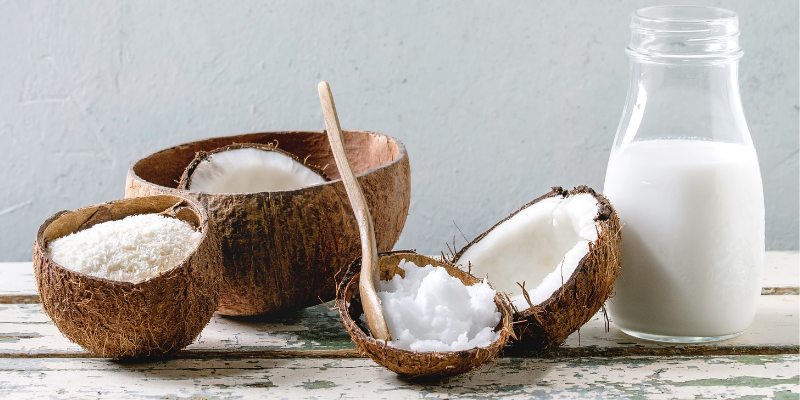Coconut production crisis: Brazil can offer sustainable alternatives to the problem faced in Asia
One of the solutions is to invest in making full use of the coconut, creating new sustainable products and reducing the waste of raw materials
São Paulo, June 2024 - The world coconut market is facing a very worrying scenario. This is because Asian countries, such as the Philippines, India and Indonesia, have been facing an unprecedented crisis in the production of the fruit, motivated by factors ranging from changes in the climate, with prolonged droughts and more intense storms, to the appearance of pests and diseases, such as the lethal yellowing of the coconut palm, capable of reducing and even devastating entire plantations.
In addition, socio-economic issues, such as the lack of access to modern agricultural technologies and low investment capacity on the part of producers, have also contributed to the worsening situation. All of this is taking place amid growing global demand, as coconut is a very versatile food and is used significantly in the composition of foods, cosmetics and nutraceuticals.
"The cosmetics industry, for example, places great value on coconut oil, which brings various sensory benefits, promotes a subtle shine and has a medium absorption and spreadability profile, with excellent slip and film formation," says Bruna Merigiolli, Specialist responsible for Research and Development at Concepta Ingredients, Sabará Group's business unit. "In the food sector, coconut is used from fresh consumption to coconut milk, coconut oil, coconut water, grated coconut and coconut flour in sweet and savory recipes," she adds.
Brazil as an alternative
In the midst of the scenario imposed by the crisis in Asian countries, it is essential that producers seek alternatives, such as diversifying sources of supply, developing resistant varieties and implementing more sustainable agricultural practices, including the reduction of monocultures.
"We should also emphasize that making full use of the fruit is a tool capable of creating economic opportunities by generating additional income from the by-products obtained, such as coconut oil," says Giulia Paciello, ESG analyst at Grupo Sabará. She points out that this practice is in line with the zero waste concept, which aims to mitigate the amount of waste generated during the production process. "Instead of being eliminated, the remaining components of the fruit are converted into value-added by-products, which maximizes the use of natural resources and reduces the generation of waste."
The expert points out that Brazil offers crucial alternatives for the global coconut market because, as well as encouraging new technologies and strengthening the local economy, they also promote the reduction of greenhouse gas emissions related to long journeys.
An example of this is Concepta Ingredients' Coconut Oil. The product comes from responsible national production, which not only adds value to the Brazilian market and avoids the GHG emissions associated with import journeys, but also makes full use of the fruit - in other words, producing it without generating any waste.
"Among the highlights of this sustainable production is the conservation of around 10,000 hectares of native forests, which contributes to carbon sequestration and storage and, as a result, to maintaining the region's microclimate. This initiative also encourages the use of high productivity practices and techniques, which take local biodiversity into account, optimize the use of natural resources and minimize environmental changes, with low energy and water consumption," Giulia concludes.
Recognition
Sabará Group is a pioneer in sustainability initiatives, being the first Brazilian company and the first chemical industry in Latin America to approve an emissions reduction target by the Science Based Targets Initiative (SBTi) and has been a signatory to the UN Global Compact since 2007.
In addition, the company has received the Ecovadis Gold rating for its global commitment to sustainability and is a member of the Carbon Disclosure Project (CDP) Benchmark Club and the Brazilian Business Council for Sustainable Development (CEBDS), where it voluntarily answers the Water Security and Climate Change questionnaires - grades B- and B.
In 2023, it won the GPTW certificate, issued by Great Place to Work, a consultancy that recognizes the best working environments in more than 90 countries around the world.
About Concepta Ingredients
Concepta Ingredients is part of the Sabará Group and specializes in natural and technological solutions developed in accordance with the Bio Abundance Program. Based on innovation and research, the company offers organic and conventional ingredients, supported by the training of families and indirect conservation of areas in different biomes in Brazil. Its vast portfolio includes technological inputs from international partners and ingredients sourced from biodiversity to meet the most specific demands of the industries in which it operates.
About Grupo Sabará
Sabará Group, with over 67 years of history, is genuinely Brazilian and recognized for its capacity for innovation and adaptation. For three generations, the Group has overcome challenges and stood out in its markets. Its commitment to the well-being of people around the world goes beyond offering innovative products and services. Its activities take future generations into account, focusing on solutions that guarantee sustainability. Through its various branches of activity, Sabará Group operates throughout the country and has a presence in countries in South America, North America and Europe. It specializes in developing high-performance technologies, solutions and raw materials for the water treatment markets in sanitation and industry, animal nutrition and health, and the food and beverage industries. The development of its products relies on 100% national knowledge and technology, a factor that contributes to Brazil becoming a benchmark in product research for a sustainable world.


